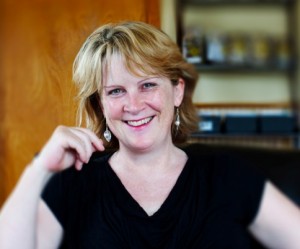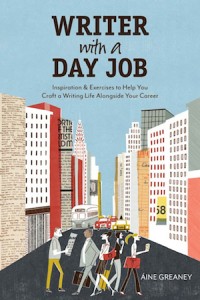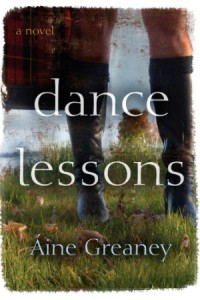Thanksgiving’s a Holiday Over Here
The American man’s voice sounded woken-up and irritated.
“It’s Thanksgiving,” he said down that payphone.
“So my roommates are off work and gone home. Like, Thanksgiving’s a holiday over here.”
Oh, come on, I wanted to say. I mean, with nobody getting born or killed or risen from the dead, just how big could this ‘holiday’ of yours really be?
 The year was 1986. The era: way, way pre-cellphone. The setting: My native Ireland.
The year was 1986. The era: way, way pre-cellphone. The setting: My native Ireland.
But only for one more month.
That day, the day before Thanksgiving, 1986, the American Embassy had issued me a temporary visa. My lucky day. How lucky? I had even found an un-vandalized payphone to call across the Atlantic to one of my expatriate friends. Now that I had my papers, I needed a landing pad in the land of the free.
I watched the last of my money clink into the payphone slot. “Is there a message?” The man asked.
“Yes,” I said, trying to keep the panic out of my voice. “Please tell my pal Mary that I’ll ring again next week. When she’s back from … um … this … Thanksgiving.”
“Sure,” he said.
Then … Clunk.
 Standing in that phone box, I was one of the 19% of unemployed young Irish people. I was among the estimated 30% of college graduates for whom there were no suitable jobs in our own country. And we’re not talking “dream job” or “creative job.” In fact, deep in a bleak recession, I doubt I even knew what that concept was.
Standing in that phone box, I was one of the 19% of unemployed young Irish people. I was among the estimated 30% of college graduates for whom there were no suitable jobs in our own country. And we’re not talking “dream job” or “creative job.” In fact, deep in a bleak recession, I doubt I even knew what that concept was.
As an unemployed person–then and now–you don’t feel like part of an unemployment statistic or a unified group. There’s just you. There’s just you and your shame and your assumption that everyone else—especially your old college friends—all have jobs. And those friends who have moved overseas? Yup, they have jobs, too. And new jobs mean new friends—the kind of friends who invite you home to their family for secular-sounding American holidays that aren’t named for a saint or a savior.
Even more than a job, I needed a place to be—somewhere far away from that damp, November afternoon in Ireland and far away from the look of shame in my parents’ eyes. Oh, yeah, as I left that phone box to walk through Dublin’s city center, I knew it in my soul, even at 24 years old: I needed a life.
 But there’s one big advantage to being 24 and jobless. Your emigration to-do list is reallyshort.
But there’s one big advantage to being 24 and jobless. Your emigration to-do list is reallyshort.
Get yourself a temporary American visa. Check.
Empty your savings for a transatlantic airline ticket. Check.
Start saying ‘goodbye’ to your family. Check.
Track down an expatriate friend to lend you a couch and a place to stay.
Um … well … I was working on that last one. But I couldn’t work on it until this Thanksgiving thing was over, when I’d scrape up enough courage and spare change to call across the Atlantic again.
A month after Visa Day, I landed in JFK Airport, New York on a freezing afternoon. I had a backpack and a borrowed $200 and yes, a place to stay.
I never did get to California, at least, not to live. From New York I took a Trailways bus three hours upstate, where, as an act of mercy, a family member had set me up with his American friend. That American friend, a man I had never met before, would pick me up and put me up until I got on my feet.
 In America, I went and found me some jobs. I was a waitress, a bartender, a secretary (when we still called it that), a college administrative person, a marketing assistant and … well, a host of other things. In fact, one year, by the time Tax Day rolled around, I submitted a whopping nine W2 forms. I went back to grad school at night. And, even during U.S. economic downturns, even with a strange accent and with substantial holes in my resume, I managed to stay (mostly) employed.
In America, I went and found me some jobs. I was a waitress, a bartender, a secretary (when we still called it that), a college administrative person, a marketing assistant and … well, a host of other things. In fact, one year, by the time Tax Day rolled around, I submitted a whopping nine W2 forms. I went back to grad school at night. And, even during U.S. economic downturns, even with a strange accent and with substantial holes in my resume, I managed to stay (mostly) employed.
But did I really like any of my jobs? Did any of them feed me or my vague, dreamy hope of one day being a writer? As an immigrant and as a child of working class parents, there were many, many years before I even let myself consider that I deserved any of these.
 My writing and editorial skills led to better and more fulfilling jobs. Almost at the same time, my gallery of rejection slips from the from literary magazines began showing a few “we’d-like-to-publish” notes. Eventually, and still with a jittery disbelief, I had found myself a dual career as a creative writer and as communications professional.
My writing and editorial skills led to better and more fulfilling jobs. Almost at the same time, my gallery of rejection slips from the from literary magazines began showing a few “we’d-like-to-publish” notes. Eventually, and still with a jittery disbelief, I had found myself a dual career as a creative writer and as communications professional.
On that pre-Thanksgiving Day in the phone box, I craved a place to be–a self-made place that matched the real me.
This morning, as I prepared for my 25th Thanksgiving in America, and before I left for my communications job, I took my cup of coffee to the kitchen counter. In my iPhone, I went through my last minute Thanksgiving list:
Turkey? Check.
Cranberries? Check.
Sweet potatoes? Check.
A really good writing life? Check. Check.
—
Aine Greaney has contributed to Women Writers, Women Books before, see Aine Greaney’s author page.
Follow Aine on Twitter @AineGreaney
Visit her website at www.ainegreaney.com.
Category: Being a Writer, Contemporary Women Writers, Expatriate Writers, Irish Women Writers




Aine, a pleasure to have another of your posts! Happy Thanksgiving! – Anora
Anora, a pleasure to write it. As we pitch and sell and write and meet deadlines, I believe it is so important to stand back and give thanks for what we have. You allowed me that opportunity. Thank you.